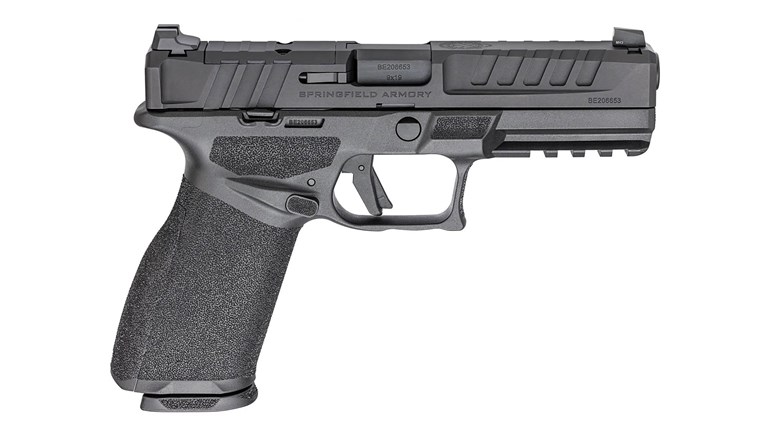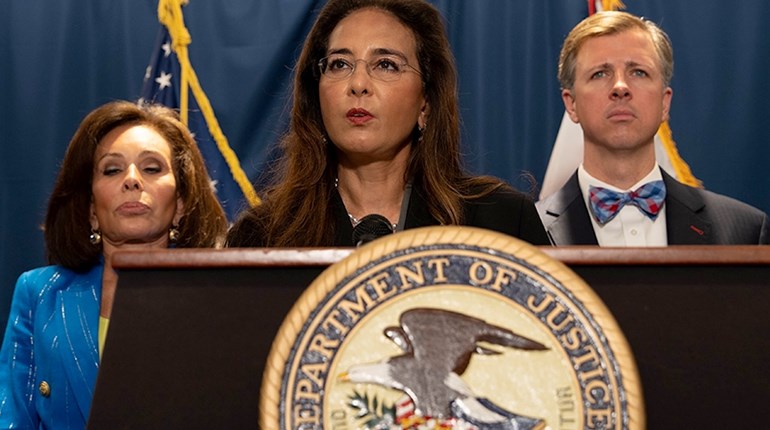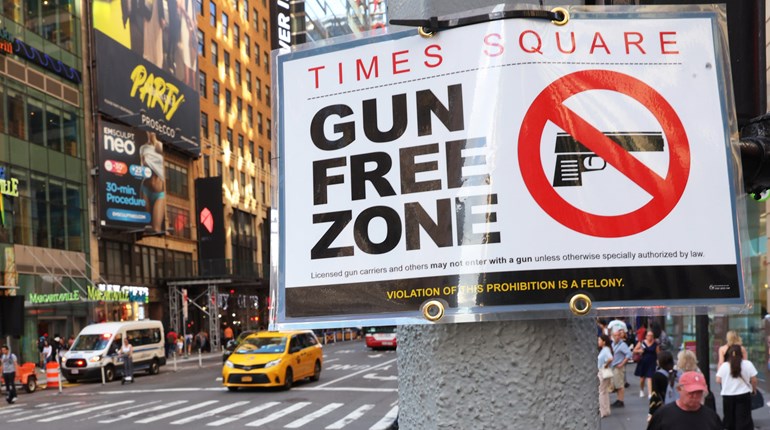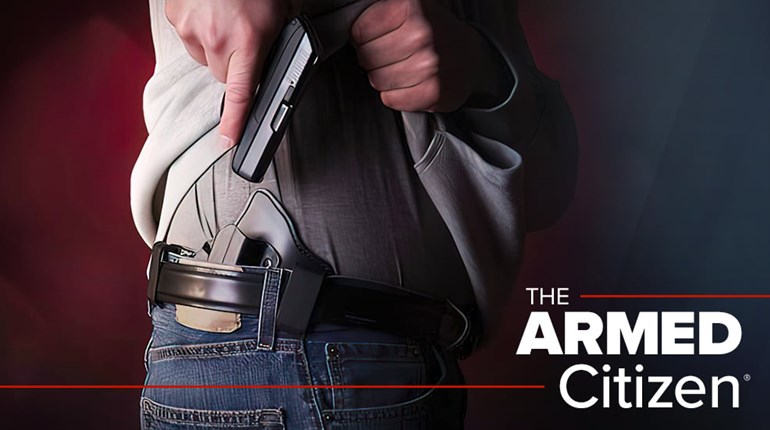
So, John Lott, an author, former professor, and the founder of the Crime Prevention Research Center (CPRC), decided to challenge all of the leading gun-control-promoting academics to a bet.
And this wouldn’t be some open-ended bet levelled at all possible challengers. Lott personally contacted a dozen gun-control-supporting academics and offered them a $1,000 wager on whether Brazil’s homicide rate will go up or down. If the homicide rate goes down as Brazil’s new leftist president enacts a long list of gun-control laws, Lott would pay them. If it goes up as the populace is choked with more gun-control laws, they would have to pay Lott. “The ultimate test of a theory is whether it accurately predicts what will happen,” said Lott, and these academics have predicted that gun bans will reduce the homicide rate.
He contacted Phil Cook, of Duke University; Jens Ludwig, of the University of Chicago; John Donohue, of Stanford Law School; Andrew Morral, of the Rand Corporation; Garen Wintemute, of the University of California, Davis; David Hemenway, of the School of Public Health, Harvard; Chris Koper, of George Mason University; Mark Siegel, of Boston University; Adam Winker, of the University of California, Los Angeles; Paul Helmke, of Indiana University; and Frank Zimring, of the University of California at Berkeley.
Lott notes that the media and gun-control advocates in academia predicted disaster in Brazil when Jair Messias Bolsonaro, who served as the 38th president of Brazil from 2019 until 2022, allowed private gun ownership in the country to increase by over 600%. But then the homicide rate actually fell. Later, when the socialist Luiz Inácio Lula da Silva, often simply referred to as “Lula,” the 39th and current president of Brazil, took over on Jan. 1, 2023, and as he signed an executive order banning the sales of guns and ammunition, banning concealed carry and more, many of these academics predicted that murder rates would fall.
“Well, they were wrong that Bolsonaro’s policy would increase murders,” said Lott. “The murder rate fell dramatically under Bolsonaro.” And now, months after Lott challenged these academics to put their money behind their publicly stated opinions, “none were willing to bet me,” said Lott.
Lott explained that 7 of the 12 didn’t respond to his emails. But Duke University’s Phil Cook did write back to say, “I like the idea of a bet, but am not going to take this one, since I have no confidence that guns and ammo will actually become scarcer in the neighborhoods with high rates of violence.”
Yes, criminals will likely keep their guns.
Stanford’s John Donohue answered to say researchers should look at past data rather than making predictions. Lott pointed out that Donohue hadn’t shied away from making many predictions in the past; for example, Donohue wrote in The Washington Post last year after the Supreme Court’s New York State Rifle & Pistol Association v. Bruen decision: “We unfortunately know what effects this ruling will have in the relatively few states that still restrict the carrying of weapons. … It will cause a spike in violent crime.”
“These academics have no problem confidently making predictions for the press or legislative committees about the future effects of gun-control laws. But they aren’t willing to put their money where their mouths are in a way that would make people remember their bad predictions. Maybe that’s because they already know the crime-fighting benefits of private gun ownership,” said Lott.
The bet is an important one, as here we have a large nation that loosened gun restrictions for several years before a new administration came in and implemented gun-control laws designed to disarm law-abiding people. If gun-control laws work, as these academics, President Joe Biden (D), many in the mainstream media and others claim they do, then murder rates should have gone up under Bolsonaro and they should fall under Lula.

As Lula had only been in office for six months as this was being written, we don’t yet have comparable violent-crime statistics from Lula’s freedom-ending regime, but it is telling that not one of these researchers has been confident enough in their policy predictions to bet Lott.
One reason must be that, before Bolsonaro became president, Brazil was ranked as the world’s most-murderous country. But, during Bolsonaro’s administration, something changed. Homicide rates tumbled somewhere between 27 and 34%. This occurred at a time when former President Bolsonaro enabled law-abiding Brazilians to acquire firearms more freely.
As of earlier this year, there were an estimated 1.9 million registered citizen firearms in Brazil; this is a significant leap from around 695,000 when Bolsonaro was first elected, according to data from Brazil’s army and police, that was analyzed by Brazilian security think tank Sou da Paz.
What Bolsonaro Did
Before Bolsonaro, ordinary citizens in Brazil were mostly forbidden from privately owning firearms; meanwhile, Brazil’s black market armed criminals and gangs.
Then, on Jan. 15, 2019—two weeks after taking office following a long presidential campaign pledging to ease gun restrictions put in place by socialist administrations—Bolsonaro followed through on his word and signed a laundry list of executive orders designed to make it possible for law-abiding Brazilians to buy and carry guns.
“Give guns to good people,” said Bolsonaro. “Let people have guns so that they can defend themselves.”
The refashioning of laws included increasing the number of guns one can own, decreasing restrictions on ammunition, making it easier to obtain concealed-carry permits, especially for registered hunters, marksmen or collectors known as “CACs.”
Bolsonaro also reduced taxes on imported firearms. Subsequently, Brazilians imported an unprecedented $75 million worth of revolvers and pistols in the first 11 months of 2022, almost double the previous year’s total. Further, he axed the rule mandating aspiring purchasers to file an application verifying their personal level of risk, which included explicit details of their living situation and pre-existing security measures.
By November 2021, Bolsonaro had pushed through a colossal 32 adjustments to counter his country’s restrictive gun rulings. His pro-freedom agenda hinged on the commonsense notion that it is the obligation of good citizens (cidadãos de bem) to play their part in protecting themselves. The Brazilian Forum of Public Security reports that gun registrations with the federal police doubled after Bolsonaro took office. In 2020 alone, 186,071 new guns were registered, an increase of 97%.
Then, in the first three years under the pro-freedom president, the homicide rate fell from 27.8 per 100,000 to around 18.5 per 100,000, a 33.5% drop.

Bolsonaro also made getting legal guns more affordable. Previously, a new gun license cost about $260, and citizens had to pay a further $25 every three years for renewal, which priced out the poor in Brazil. With Bolsonaro’s changes, the initial fee went down to $18.50, and licenses became valid for a decade, enabling the poor and arguably most impacted by violence to better safeguard themselves and others.
“The principal driver of homicide is arguably the country’s gang violence, fueled by the expansion of the international reach of Brazil’s two principal prison gangs, the Red Command (CV) and the First Capital Command (PCC) and their surrogates, competing for control over narco-trafficking routes,” said Evan Ellis, a research professor of Latin American studies at the U.S. Army War College Strategic Studies Institute. “Other factors such as corruption and dysfunctionality in law enforcement, difficulties in police budgets and prisons, have compounded matters.”
Ellis also said, “The fact that there was no substantial increase in gun-related violence undercuts the arguments of those who suggested Bolsonaro’s moves would unleash a new wave of gun-related violence in the country.”
Before Bolsonaro took the helm, violence was at its worst in Brazil, and guns and gun licenses were only accessible to a narrow category of people. But in 2019—the first year of significant changes to the legislation—an additional 400,000 firearm licenses were added to the registrar, up nearly 500% from 2018.
Gun stores and shooting tournaments then became much more common across Brazil, including the mammoth Schützenfest in Brazil’s south. According to local reports, an average of one brand-new shooting range opened its doors daily for four years under the Bolsonaro administration. The Brasiliense Sports Shooting Federation (FBTE) was founded in 1973 by military and civilian police. It was, at the time, the only official shooting range in the district. But as this was being written, five decades after its inception, the FBTE boasts 32 authorized clubs—20 of which opened under the Bolsonaro reign.
“I argue that a person has the right to buy and carry his weapon, within the law,” said José de Anchieta Jerônimo, president of FBTE.
Furthermore, many Brazilians do not trust police and law enforcement to come to their defense in the face of heavily armed criminals.
“There is a lot of corruption. We can’t always trust the police to handle matters effectively,” said Miguel Valle, a shop attendant and new gun owner from São Paulo.
In 2020, lawyer Marcos Zborowski Pollon founded the NRA-inspired, non-profit PROARMAS, officially Associação Nacional Movimento Pro Armas (AMPA), with a simple mission to “build a free country.” Pollon, who describes himself as “pro-God, pro-Life and pro-Guns,” stresses that the PROARMAS movement is fundamentally “an initiative to produce content on the political, philosophical, legal and technical issues surrounding firearms and civilian access to firearms.”

Indeed, there has been no shortage of mainstream-media pundits and so-called criminologists downplaying the evident success of expanded gun rights and falling homicide rates in Brazil.
“The unexpected decline has little to do with Bolsonaro or his decrees,” said an article in The Washington Post. Moreover, Germany’s DW—a state-owned international broadcaster—claimed that “relaxed gun laws prompt violence fears.”
Yet, many vehemently disagree.
“More legal guns reduced crime in Brazil. Homicide fell 34% after Bolsonaro made firearms permits easier and cheaper,” said Lott. “Brazil’s pre-2019 laws looked like the wish list of American gun-control advocates. Owning a gun without a license carried a four-year prison sentence.”
Until 2003, Brazilians 21 or over could purchase and carry guns with relative lack of difficulty; however, that year saw the first election of the aforementioned socialist Lula. As a result of Lula becoming President, a Disarmament Statute was quickly signed into law, making it very costly and difficult to own a gun. In 2004, Lula’s administration launched an entire “National Disarmament Campaign,” and more than half a million privately owned guns were handed over in government-incentivized “buyback” schemes.

A Lula-instigated referendum took place the following year, asking if Brazilians wanted an absolute prohibition of gun sales. This gun-control push was adorned with marketing materials saying that “guns are the leading cause of death” in Brazil. Yet the country’s gun-rights believers did not simply back down. In the end, the public voted a resounding no (63%) to such a ban.
What Now in Brazil?
So then, in late 2022, Lula, who spent 18 months behind bars on a corruption conviction, narrowly beat Bolsonaro in a closely contested election to return to power at the beginning of 2023. The leftist politician and his advisors soon announced plans to revoke many of Bolsonaro’s edicts, indicating that the new government would “disarm” the increasingly gun-possessing society.
Ellis says that the brittleness of Brazil’s ability to own and carry firearms for self-defense is primarily due to Bolsonaro’s inability to convert his executive orders into law due to resistance from leftists in the nation’s legislature. This made reversing course much easier for Lula.
Still, Lula’s changes are not a done deal. Brazil’s October 2022 congressional election saw a dramatic swell of pro-firearms lawmakers seeking U.S.-style Second Amendment gun policies. This will likely make Lula’s effort to overturn all of Bolsonaro’s gun reforms more challenging.
Known as the “bullet caucus,” the conservative congressional bloc has a long history of standing for the interests of citizens advocating for self-defense.
As for Lott, he says he is not surprised that the dozen gun-control-promoting academics he contacted wouldn’t put a little money behind their claims. “It was a serious bet,” says Lott. “I went public with it because people need to know what the research actually says about the benefits of their freedom.”


































